Climate change graphics
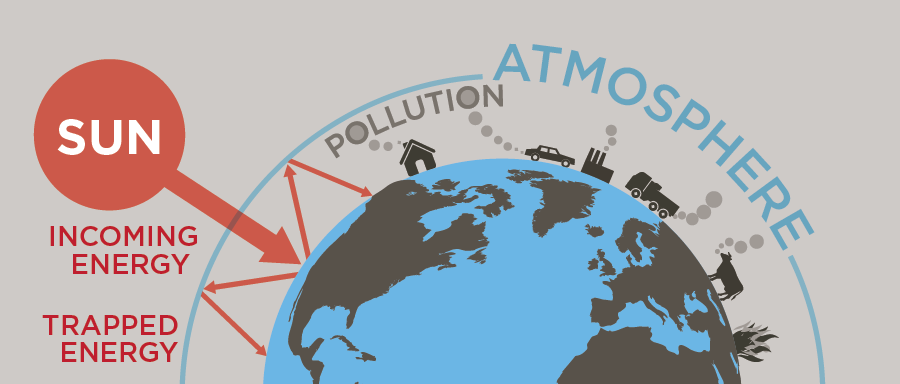
The problem felt around the world
عربى English Samoan 中文 Español
Our changing climate
October 2018
A problem felt around the world
Carbon dioxide (CO2) is a natural gas that helps make the planet warm so life on earth can survive. Human actives are putting too much CO2 gas in the earth's atmosphere and the ocean. This is harming our planet and is causing global temperatures to get warmer. This is called climate change.
More CO2 in the atmosphere is creating dangerous environmental changes around the world that are not good for people. Additionally, more CO2 in the ocean is making it harder for ocean life, like fish and shellfish, to survive. This means there is less seafood for people to sell and eat.
What climate change means for us
Climate change will harm people and communities around the world differently based on age, gender, health, where they live and what they do for work.
As greenhouse gases build up in Earth's atmosphere and oceans, more heat will be trapped. CO2 in the atmosphere has skyrocketed since the start of the industrial revolution in 1750, from about 280 parts per million (PPM) to over 400 PPM in 2017. In oceans, CO2 pollution is making ocean water mor acidic and making it harder for fish and ocean life to grow and survive. Overall, global temperatures are rising steadily despite natural ups and downs, and 2016 was the hottest year on record. These global changes contributed to problems such as:
- Poor air quality in Seattle;
- Drought in Texas;
- Hurricane in Puerto Rico;
- Dust storm in Kenya;
- Flooding in Pakistan.
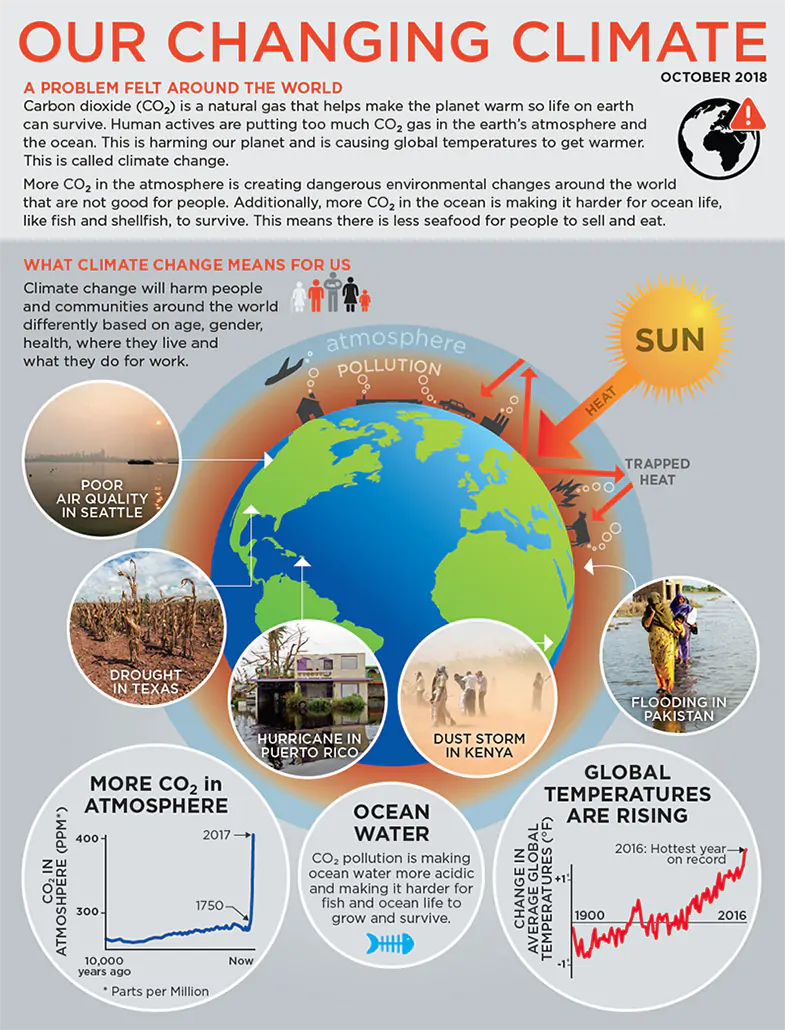
Climate change is affecting our local communities
Here is how climate change is affecting King County:
- Environmental impacts
- Rising sea levels. Warmer temperatures are heating up the ocean and making ice and glaciers melt, causing the sea level to rise. This can blood coastal homes and communities.
- More heavy rain.
- More river flooding.
- Hotter and drier summers.
- Less snowpack in the mountains.
- Wildfires.
- Health impacts
- More hot days. More high heat days can make people sick.
- Bad air quality. Hotter summers can make air quality worse. This can harm people with asthma and heart problems.
- Diseases. Warmer temperatures can create more bacteria in seafood and fresh water and could make people sick. Diseases from ticks and mosquitoes can increase.
- Economic impacts - changes in environment will cost people more money and impact jobs:
- Floods from rivers and the ocean can damage homes, neighborhoods and businesses.
- Extreme weather like wind storms can damage homes and make places less safe.
- Food. Crops can be damaged by heat, drought and insects. This can affect what food is sold in the market and how much it costs.
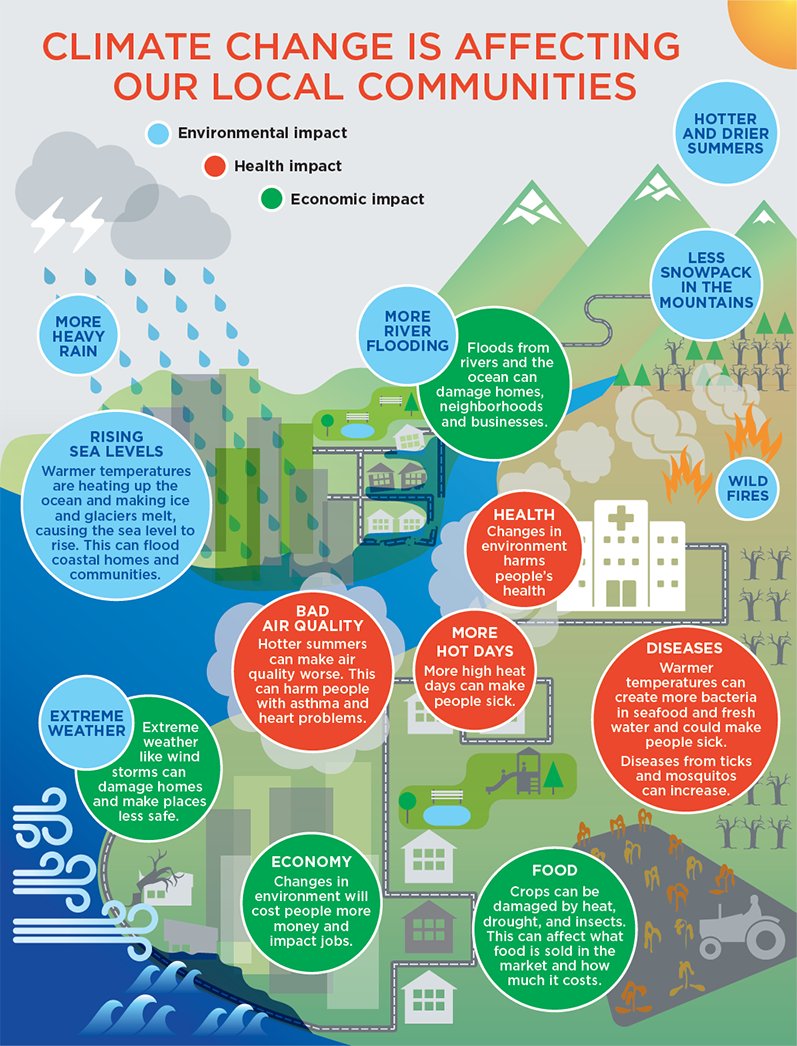
Working together to solve climate change
You and your community can help create a healthy and clean environment for families today and future generations.
Drive less
Take the bus, carpool, bike, and walk more instead of driving to cut CO2 pollution. Options include:
- Vanpool
- Orca lift
Save energy
Reduce CO2 pollution and save money by saving energy in your house and using less electricity.
Use energy efficient, "Energy Star" appliances and LED light bulbs.
Create less waste
Cut pollution by creating less trash. Recycle your waste and compost your unwanted food.
Start a community exchange to trade items you no longer need instead of throwing them away.
Buy local and seasonal foods
Buy local foods that are in season. This fights CO2 pollution because many foods in stores are shipped from places far away.
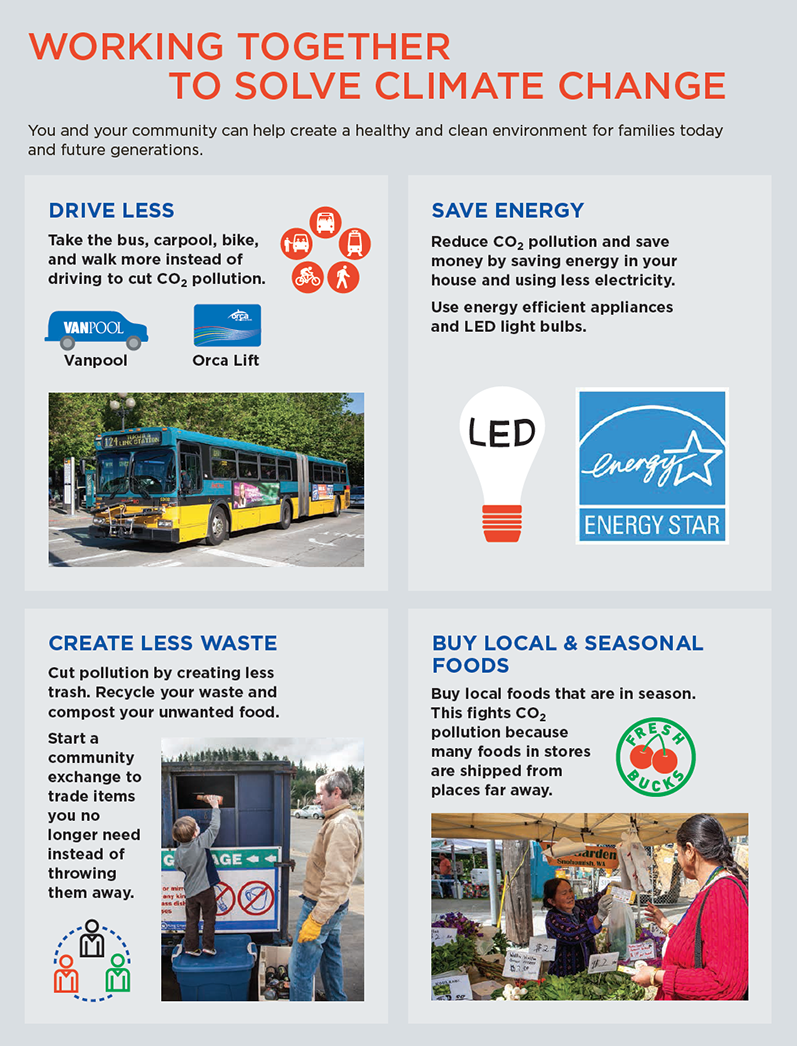
Working together to fight climate change
You and your community can help create a healthy and clean environment for families today and future generations.
Volunteer
Planting trees and other plants in your community can help fight pollution. Trees and plants clean the air and create shady places to escape the heat.
Be prepared
Be ready for extreme weather events before they happen. Check on elderly neighbors or those who have health conditions during hot summer days and other extreme weather events.
Make your voice heard
Make your voice heard by going to community meetings to talk about how climate change is impacting your family.
Tell others about climate change and work together to fight pollution.
King County climate action. Clean future. Strong communities.
King County provides services and resources to help communities support actions on climate change to reduce CO2 pollution and strengthen communities.
For more information about climate change please visit kingcounty.gov/climate.
Climate change materials were developed in partnership and collaboration with the following organizations: Chinese Information and Service Center, Latino Community Fund, Mother Africa, and UTOPIA.
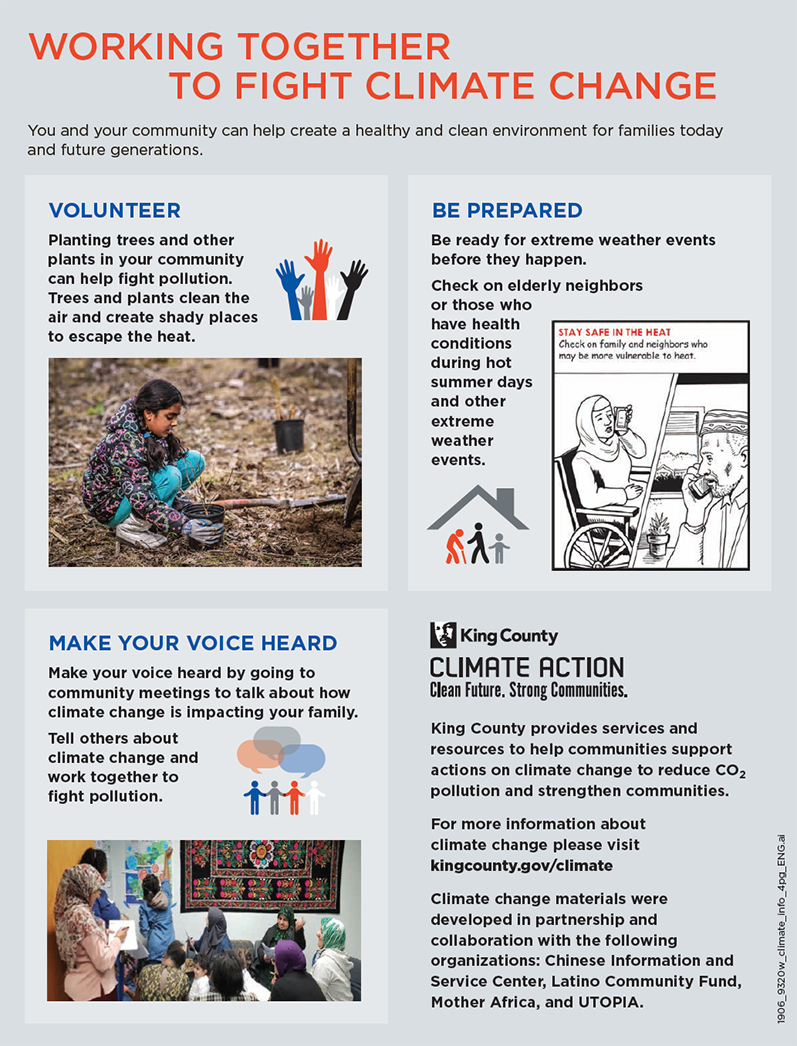

 Translate
Translate